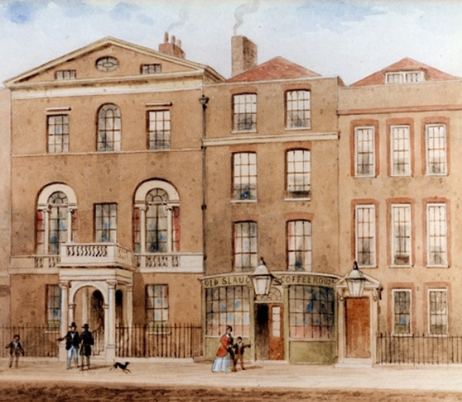The Trial of BILL BURNS
- voiceforus

- Jul 25, 2021
- 3 min read
The painting below depicts the Trial of Bill Burns, a costermonger, after he was found beating his donkey.
The case became memorable because the prosecutor, Colonel Richard Martin, brought the abused donkey into the courtroom.
That was the first prosecution under the 1822 Martin's Act for cruelty to animals, and the first known prosecution for animal cruelty in the world.
Animal Law reports that although BILL BURNS was clearly guilty, the magistrates seemed hesitant to convict, as so often happened in those days.
The magistrates did not care about the fate of the donkey, and Colonel Martin felt that the case would be lost. At that point, he sent for the donkey so that they could plainly see all the wounds he/she suffered.
According to Animal Law, BURNS was fined but the amount is unknown.
Colonel Martin was an Irish politician and an animal rights campaigner.
Also known as “Humanity Dick”, a nickname bestowed on him by King George IV, Colonel Martin is now best known especially for his work against bear baiting and dogfighting.
Colonel Martin succeeded in getting the pioneering Cruel Treatment of Cattle Act 1822 nicknamed “Martin's Act”, passed into British law on 22nd July 1822.
On 16th June 1824, a group of twenty-two men met in Old Slaughter's Coffee House on St. Martin’s Lane, not far from Piccadilly Circus in London, with the idea of forming a voluntary organization concerned with enforcing Martin’s Act and to promote kindness toward animals.
Although the building has long since been demolished, there is a plaque on a shop at 77–78 St. Martin's Lane, near Long Acre, to commemorate the founding of the Society.
The man who called the meeting was Reverend Arthur Broome.
Rev. Broome invited various clergy, lawyers, and parliamentarians. Among them were Colonel Martin and William Wilberforce, who was already famous from his work to abolish slavery in the British Empire.
The organization was called the Society for the Prevention of Cruelty to Animals, or the SPCA.
Colonel Martin, Rev. Broome, and William Wilberforce became the founders and Rev. Broome was elected as the Society's first honorary secretary.
Rev. Broome was a remarkable man who sacrificed a lot. He gave up his London living to work full-time, unpaid, for the SPCA and paid for the expenses out of his own pocket.
He also paid the first inspectors to police Smithfield meat market in London, thus inaugurating the tradition of anticruelty inspectors known to this day.
Rev. Broome was also the guarantor for the SPCA's debts, which led to his financial ruin.
Unfortunately, when the debts exceeded the Society's revenue, Rev. Broome was held liable, and in a hearing in April 1826 he was sentenced to serve time in the debtors' prison.
By March 1828, although still a member, Rev. Broome was replaced as the Society's secretary largely owing to his familial circumstances and his loss of income.
In 1840, Queen Victoria gave permission for the Society to be called the Royal Society for the Prevention of Cruelty to Animals (RSPCA).
Now, the RSPCA operates in England and Wales. It is the oldest and largest animal welfare organization in the world and is one of the largest charities in the UK.
The charity's work has inspired the creation of similar groups in other countries, including the Scottish Society for Prevention of Cruelty to Animals (1839), the Dublin Society for the Prevention of Cruelty to Animals (1840), the American Society for the Prevention of Cruelty to Animals (1866), the Royal New Zealand Society for the Prevention of Cruelty to Animals (1882), the Singapore Society for the Prevention of Cruelty to Animals (1959), just to mention a few.
According to Animal Law, “Humanity Dick's” fame spread as far as the U.S. and, today, a frieze at the San Francisco chapter of SPCA bears these words: “Richard Martin known as 'Humanity Dick,' author of the first law to protect animals in England - 1822.”
Voice For Us Disclaimer: This story is sourced from official news outlets. Links included.
Details may be removed or additional information may be provided in future should such sources report an update.














Comments